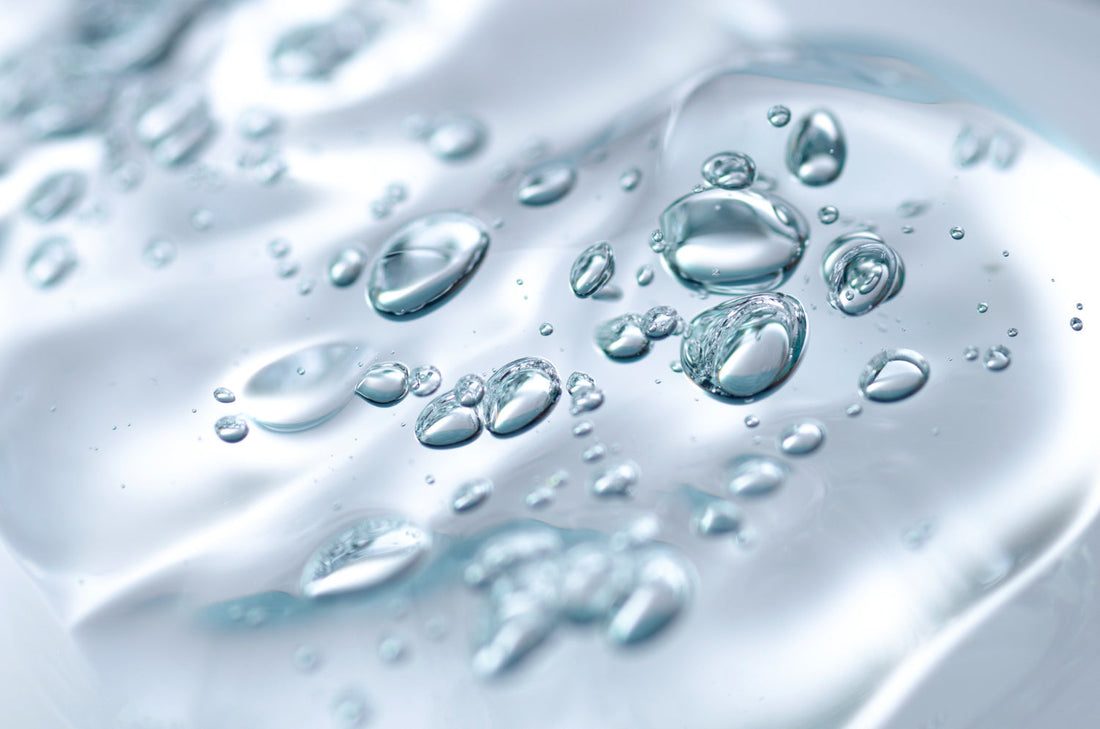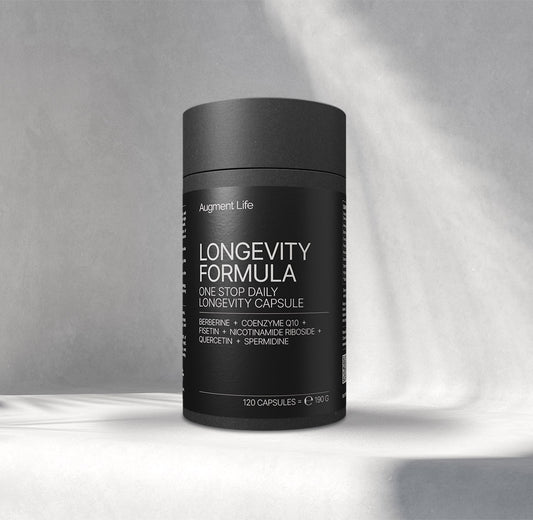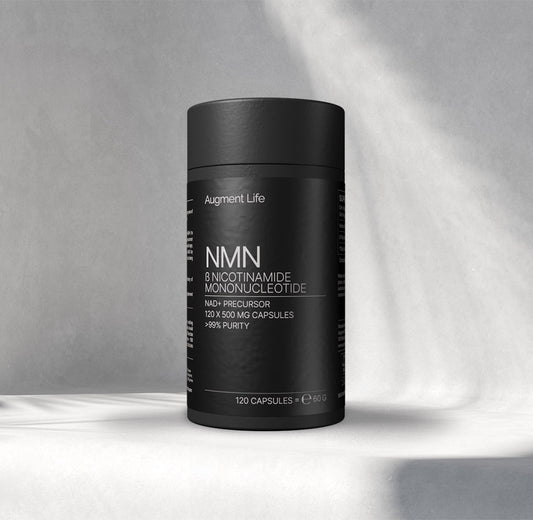Hyaluronic acid has become a popular skin care tool because it has long been shown to fill up wrinkles or lines, restore volume and take on water– giving you a more moisturized and youthful appearance.
In this article, we’ll delve into the science behind hyaluronic acid, exploring its potential benefits, appropriate dosage, and any potential side effects.
Understanding Hyaluronic Acid
Hyaluronic acid (HA) is a molecule that is naturally present in our skin, joints, and connective tissues.1 Levels of hyaluronic acid decrease as we age, and this may contribute both to the physical signs of aging, such as:
- the appearance of wrinkles,
- age-related conditions, including osteoarthritis.
Hyaluronic Acid - Health Benefits
Research suggests hyaluronic acid may offer a range of health benefits, including:
Skin Hydration and Anti-Aging
The key molecule involved in skin moisture is HA, mainly due to its unique capacity to bind and retain water molecules.2 It can hold up to 1,000 times its weight in water, making it a vital component in skincare products.
In one particular study, it was shown that taking 200 mg of HA daily, together with L-carnosine and Methylsulfonylmethane for 60 days improved skin hydration, elasticity, and reduced the production of sebum.3
Joint Health
HA is a key component of synovial fluid, which lubricates and cushions joints.,
Use of HA, specifically via HA injections into the joint for osteoarthritis, may reduce pain and improve joint function.4-5 Still, more research is needed to confirm long-term benefits.
Eye Health
Due to its lubricating component, HA has been used in the field of ophthalmology to relieve dry eyes and reduce irritation.6
This has been supported by a review of 53 clinical trials using HA drops ranging from 0.1% to 0.4%, to which results indicated that hyaluronic acid has lubricating, anti‐inflammatory, antioxidant, and anti‐toxic effects in the eyes.7
Hyaluronic acid - Dosage
The optimal dosage of hyaluronic acid can vary depending on the desired benefit and the form of administration (oral supplement, topical cream, injection, drops).
Here's a general guideline:
Oral Supplements: The recommended dosage is 120 mg per day.8 Typical over-the-counter supplements available are at 60 mg and 120 mg.
Topical Creams: The concentration of HA in these products can vary, but effective concentrations usually range from 0.1% to 0.3%.9 Make sure to follow the manufacturer's instructions for application.
Injections: Intra-articular injections for joint health usually involve a series of injections over several weeks. The specific dosage and regimen depend on the product used and the patient's condition.
Eye Drops: Typical solutions used with relevant effects range from 0.1 to 0.4% HA.7
Hyaluronic Acid - Potential Side Effects
Hyaluronic acid is generally well-tolerated, especially when properly used, but some people may experience mild side effects like:
- Stomach upset (with oral supplements)
- Skin irritation (with topical creams)
- Pain, swelling, or redness (with injections), but usually subsides after a week.1
It's important to note that hyaluronic acid may interact with certain medications. Always consult with a doctor before starting hyaluronic acid, especially if you have any pre-existing health conditions or are taking medications.
Final Words
Overall, hyaluronic acid offers a wide range of health benefits, like:
- skin hydration,
- joint health,
- wound healing,
- eye health.
Use of HA is generally safe, as long as used appropriately. Just make sure to read the instruction label and talk with your healthcare provider on the appropriate dose for your individual needs and desired results.
References:
- Walker, K., Basehore, B. M., Goyal, A., & Zito, P. M. (2023, July 3). Hyaluronic acid. StatPearls - NCBI Bookshelf. https://www.ncbi.nlm.nih.gov/books/NBK482440/.
- Baumann L. (2007). Skin ageing and its treatment. The Journal of pathology, 211(2), 241–251. https://doi.org/10.1002/path.2098.
- Guaitolini, E., Cavezzi, A., Cocchi, S., Colucci, R., Urso, S. U., & Quinzi, V. (2019). Randomized, Placebo-controlled Study of a Nutraceutical Based on Hyaluronic Acid, L-carnosine, and Methylsulfonylmethane in Facial Skin Aesthetics and Well-being. The Journal of clinical and aesthetic dermatology, 12(4), 40–45. https://www.ncbi.nlm.nih.gov/pmc/articles/PMC6508480/.
- Bowman E.N., Hallock J.D., Throckmorton T.W., Azar F.M. Hyaluronic Acid Injections for Osteoarthritis of the Knee: Predictors of Successful Treatment. Int. Orthop. 2018;42:733–740. https://doi.org/10.1007/s00264-017-3731-8.
- Altman, R., Bedi, A., Manjoo, A., Niazi, F., Shaw, P., & Mease, P. (2019). Anti-Inflammatory Effects of Intra-Articular Hyaluronic Acid: A Systematic Review. Cartilage, 10(1), 43–52. https://doi.org/10.1177/1947603517749919.
- Hynnekleiv, L., Magno, M., Vernhardsdottir, R. R., Moschowits, E., Tønseth, K. A., Dartt, D. A., Vehof, J., & Utheim, T. P. (2022). Hyaluronic acid in the treatment of dry eye disease. Acta ophthalmologica, 100(8), 844–860. https://doi.org/10.1111/aos.15159.
- Salwowska, N. M., Bebenek, K. A., Żądło, D. A., & Wcisło-Dziadecka, D. L. (2016). Physiochemical properties and application of hyaluronic acid: a systematic review. Journal of cosmetic dermatology, 15(4), 520–526. https://doi.org/10.1111/jocd.12237.
- Oe, M., Sakai, S., Yoshida, H., Okado, N., Kaneda, H., Masuda, Y., & Urushibata, O. (2017). Oral hyaluronan relieves wrinkles: a double-blinded, placebo-controlled study over a 12-week period. Clinical, cosmetic and investigational dermatology, 10, 267–273. https://doi.org/10.2147/CCID.S141845.
- Bravo, B., Correia, P., Gonçalves Junior, J. E., Sant'Anna, B., & Kerob, D. (2022). Benefits of topical hyaluronic acid for skin quality and signs of skin aging: From literature review to clinical evidence. Dermatologic therapy, 35(12), e15903. https://doi.org/10.1111/dth.15903








